
‘We Know You’re Busy Writing...’: The Collected Short Stories of Edmund Crispin
Autor: Edmund Crispin
Número de Páginas: 547The complete collection of published short stories of Edmund Crispin, together in one volume for the first time.

The complete collection of published short stories of Edmund Crispin, together in one volume for the first time.
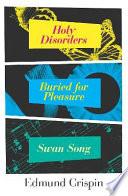

Este es el primer caso del extravagante y genial profesor de Oxford y sabueso aficionado Gervase Fen (La juguetería errante), y una de las cumbres de la Edad Dorada de la novela de detectives inglesa. Las compañías de teatro suelen ser siempre un hervidero de habladurías. Pero pocas son tan intrigantes como la que se encuentra actuando en estos momentos en Oxford. La joven y letal Yseut, actriz algo mediocre y maliciosa, es el centro de todas las miradas, aunque su principal talento consiste en destrozar las vidas de los hombres que la rodean. Hasta que es hallada muerta en extrañas circunstancias. Por fortuna, entre bastidores se encuentra el excéntrico profesor Gervase Fen, quien halla mayor placer en resolver crímenes que en enseñar literatura inglesa. Y cuanto más investiga el caso, más cuenta se da de que todo aquel que conocía a Yseut habría sido candidato a asesinarla; pero ¿será capaz Fen de descubrir quién lo hizo en realidad? El cadáver de la joven ha dejado una pista reveladora: una reproducción de un extraño anillo en forma de mosca dorada.
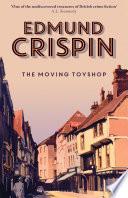
When a poet, Richard Cadogan, receives an unexpected £50 advance from his publisher for his new poetry book, he decides to go to Oxford for a well deserved holiday. The change of scenery and peace of mind is what he needs to recover his inspiration for writing, but little he suspects that what he envisioned as a leisurely time spent on long walks and visiting friends will turn into a mystery solving adventure full of unexpected and dangerous twists. After an eventful train journey, Cadogan arrives in Oxford late at night only to realise that he has forgotten the exact address of his stay. Relying on a distant memory of the place he boarded in years ago he accidentally enters a toyshop where, to his surprise and fright, he finds the dead body of a women. Before he knows he is knocked out and spends his first night of the holidays locked in the backroom of the shop. When he finally recovers from the concussion the body is gone and the toyshop turned mysteriously into a grocery store, and Cadogan himself is accused of trespassing and stealing food. Luckily for the puzzled poet his old university friend, the professor of literature, Gervase Fen is there ready to plunge into the midst ...
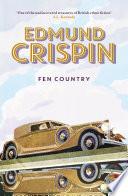
Dandelions, hearing aids, a blood-stained cat, a Leonardo drawing and a corpse with an alibi... Just some of the unusual clues that Professor Gervase Fen and his friend Inspector Humbleby are confronted with in this sparkling collection of short mystery stories. Employing a skilful balance of ingenuity and humour, Crispin lays out all the clues. Can you solve the case before Professor Fen? First-published posthumously in 1979, Fen Country is Edmund Crispin's second collection of short stories.
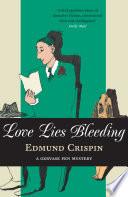
A VINTAGE MURDER MYSTERY As inventive as Agatha Christie, as hilarious as P.G. Wodehouse – discover the delightful detective stories of Edmund Crispin. Crime fiction at its quirkiest and best. Castrevenford school is preparing for Speech Day and English professor and amateur sleuth Gervase Fen is called upon to present the prizes. However, the night before the big day, strange events take place that leave two members of staff dead. The Headmaster turns to Professor Fen to investigate the murders. While disentangling the facts of the case, Mr Fen is forced to deal with student love affairs, a kidnapping and a lost Shakespearean manuscript. By turns hilarious and chilling, Love Lies Bleeding is a classic of the detective genre. Erudite, eccentric and entirely delightful – Before Morse, Oxford’s murders were solved by Gervase Fen, the most unpredictable detective in classic crime fiction.

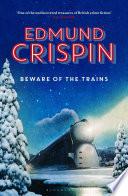
How acute are your powers of perception? Do they begin to match those of Gervase Fen, Oxford don and sleuth supreme? First published in 1953, Beware of the Trains is a collection of sixteen short mysteries. Fen must link a missing train conductor to the murder of a thief, decipher cryptograms to solve the death of a cipher expert and puzzle out a locked-room mystery on Boxing Day. Erudite and complex, these Gervase Fen cases are classic crime at its finest: plot, atmosphere and anecdote, bound together by Edmund Crispin's inimitable wit and charm.

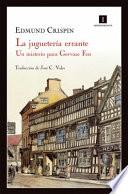
La juguetería errante es un clásico de la novela de detectives inglesa, considerado unánimemente una de las cumbres indiscutibles del género. Cuando el poeta Richard Cadogan decide pasar unos días de vacaciones en Oxford tras una discusión con el avaro de su editor, poco puede imaginar que lo primero que encontrará al llegar a la ciudad, en plena noche, será el cadáver de una mujer tendido en el suelo de una juguetería. Y menos aún que, cuando consigue regresar al lugar de los hechos con la policía, la juguetería habrá desaparecido y, en su lugar, lo que encontrarán será una tienda de ultramarinos en la que, naturalmente, tampoco hay cadáver. Cadogan decide entonces unir fuerzas con Gervase Fen, profesor de literatura inglesa y detective aficionado, el personaje más excéntrico de la ciudad, para resolver un misterio cuyas respuestas se les escapan. Así, el dúo libresco tendrá que enfrentarse a un testamento de lo más inusual, un asesinato imposible, pistas en forma de absurdo poema, y persecuciones alocadas por la ciudad a bordo del automóvil de Fen, Lily Christine III.
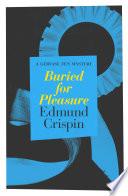
A sleuthing Oxford professor hunts a village blackmailer, in a novel by an author who “combines a flawless plot, witty dialogue, and a touch of hilarity” (The New York Times). In the sleepy English village of Sanford Angelorum, Oxford professor and amateur detective Gervase Fen is taking a break from his books to run for Parliament. At first glance, the village he's come to canvass appears perfectly peaceful, but Fen soon discovers that appearances can be deceiving: someone in the village has discovered a dark secret and is using it for blackmail. Anyone who comes close to uncovering the blackmailer's identity is swiftly dispatched. As the joys of politics wear off, Fen sets his mind to the mystery—but finds himself caught up in a tangled tale of eccentric psychiatrists, escaped lunatics, beautiful women, and lost heirs . . . “His books are full of high spirits and excellent jokes, with constant literary allusions . . . But at times the mood turns darker, and Crispin is capable of passages of both genuine suspense and ingenious deduction.” —The Daily Telegraph “One of the most literate mystery writers of the twentieth century.” —Boston Globe
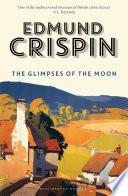
Death and decapitation seem to go hand in hand in the Devon village of Aller. When the first victim's head is sent floating down the river, the village's rural calm is shattered. Soon the corpses are multiplying, and the entire community is involved in the hunt for the murderer. Whilst many chase false trails, it is left to Gervase Fen, Oxford don and amateur criminologist, to uncover the sordid truth. Equal parts compelling, witty and ingenuous, this novel is a classic example of great British detective fiction. First published in 1977, Glimpses of the Moon was Edmund Crispin's ninth and final novel.
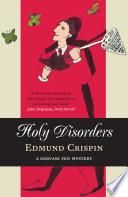
A VINTAGE MURDER MYSTERY As inventive as Agatha Christie, as hilarious as P.G. Wodehouse – discover the delightful detective stories of Edmund Crispin. Crime fiction at its quirkiest and best. Holy Disorders takes Oxford don and part time detective Gervase Fen to the town of Tolnbridge, where he is happily bounding around with a butterfly net until the cathedral organist is murdered, giving Fen the chance to play sleuth. The man didn't have an enemy in the world, and even his music was inoffensive: could he have fallen foul of a nest of German spies or of the local coven of witches, ominously rumored to have been practicing since the 17th century? Tracking down the answer pleases Fen immensely - only the reader will have a better time. Erudite, eccentric and entirely delightful – Before Morse, Oxford’s murders were solved by Gervase Fen, the most unpredictable detective in classic crime fiction.




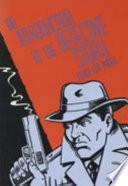
This book is a no-apologies introduction to Detective Fiction. It's written in an aggressive, modern English well-suited to a genre which has traditionally broken ground in terms of aggressive writing, contemporary scenarios, and tough dialogue.
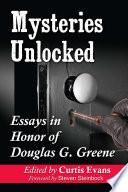
In honor of the 70th birthday of Professor Douglas G. Greene, mystery genre scholar and publisher, this book offers 24 new essays and two reprinted classics on detective fiction by contributors around the world, including ten Edgar (Mystery Writers of America) winners and nominees. The essays cover a myriad of authors and books from more than a century, from J.S. Fletcher's The Investigators, originally serialized in 1901, to P.D. James' Death Comes to Pemberley, published at the end of 2011. Subjects covered include detective fiction in the Edwardian era and the "Golden Age" between the two world wars; hard-boiled detective fiction; mysteries and intellectuals; and pastiches, short stories and radio plays.
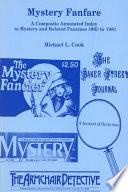
This work is a composite index of the complete runs of all mystery and detective fan magazines that have been published, through 1981. Added to it are indexes of many magazines of related nature. This includes magazines that are primarily oriented to boys' book collecting, the paperbacks, and the pulp magazine hero characters, since these all have a place in the mystery and detective genre.
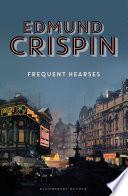
Stars, Starlets, Floozies and factotums to the film world – Gervase Fen suspects them all... The young actress, Gloria Scott, drowns after throwing herself off Waterloo Bridge. The news sends shock-waves around her film studio where Gervase Fen, Oxford Don and amateur criminologist, just so happens to be working. With help from friend the Inspector Humbleby, the tragic loss of young life leads them to many more dark places. Young Ms. Scott's apartment has been searched, and all signs of her real identity have been removed, and what's more, minutes before Humbleby interrogates her co-workers, one of them, a lecherous cameraman, is poisoned. Equal parts compelling, witty and ingenuous, this novel is a classic example of great British detective fiction. First published in 1950, Frequent Hearses was Edmund Crispin's seventh novel.
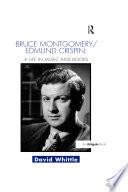
Under his real name, Bruce Montgomery (1921-1978) wrote concert music and the scores for almost 50 feature films, including some of the most enduring British comedies of the twentieth century, amongst them a number in the series started by Doctor in the House and the first six Carry On films. Under the pseudonym of Edmund Crispin he enjoyed equal success as an author, writing nine highly acclaimed detective novels and a number of short crime stories, as well as compiling anthologies of science fiction which helped to increase the profile of the genre. A close friend of both Philip Larkin and Kingsley Amis, Montgomery did much to encourage their work. In this first biography of Montgomery, David Whittle draws on interviews with people who knew the writer and composer. These interviews, together with in-depth research, provide great insight into the development of Montgomery as a crime fiction writer and as a composer in the ever-demanding world of films. During the late 1950s and early '60s these demands were to prove too much for Montgomery. Alcoholism combined with the onset of osteoporosis and a retreat into a semi-reclusive lifestyle resulted in him writing and composing...
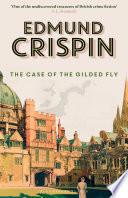
It is October 1940 and at Oxford the Full Term has just begun. Robert Warner, up and coming playwright known for his experimental approach, has chosen an Oxford repertory theater for the premiere of his latest play, Metromania. Together with his cast he comes to Oxford to rehearse a week before the opening, but Warner's troupe is a motley group of actors among whom is the beautiful but promiscuously dangerous Yseut Haskell . She causes quite a stir with her plots, intrigues and love triangles. When she is found shot dead in the college room of a young man who is infatuated with her, everyone is puzzled and worried –most of the actors have had a reason to get rid of the femme fatale and few have alibis. The police are at loss for answers and are ready to proclaim the incident as suicide, but Gervase Fen, an Oxford don and professor of literature, who thrives off solving mysteries, is ready to help. The Case of the Gilded Fly, first published in 1944, is Edmund Crispin's debut novel and also the first Gervase Fen Mystery.
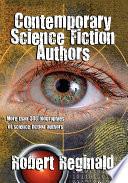
This bio-bibliography of the golden age of the science fiction field includes 308 biographies compiled from questionnaires sent to the authors, and chronological lists of 483 writers' published works. This facsimile reprint of the 1975 edition includes a title index, introduction, and minor corrections. A now-classic guide to the major and minor SF writers active in the early 1970s.
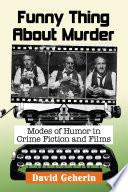
Focusing on crime fiction and films that artfully combine comedy and misdeed, this book explores the reasons writers and filmmakers inject humor into their work and identifies the various comic techniques they use. The author covers both American and European books from the 1930s to the present, by such authors as Rex Stout, Raymond Chandler, Robert B. Parker, Elmore Leonard, Donald E. Westlake, Sue Grafton, Carl Hiaasen and Janet Evanovich, along with films from The Thin Man to the BBC's Sherlock series.
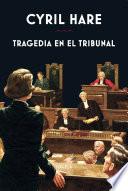
«Escrita con elegancia e ingenio, Tragedia en el tribunal es para muchos la mejor novela detectivesca inglesa ambientada en el mundo de la justicia». P. D. James En el otoño de 1939, el juez William Hereward Barber del Tribunal Supremo recorre el sur de Inglaterra presidiendo casos de municipio en municipio. Cuando una carta le advierte sobre una inminente venganza sobre su persona, el magistrado le resta toda importancia, atribuyéndola sin duda a algún inofensivo lunático. Pero al recibir el segundo anónimo, seguido esta vez de una caja de bombones envenados, Barber empieza realmente a temer por su vida. Será el abogado y detective aficionado Francis Pettigrew —probo, poco exitoso y enamorado en su día de la esposa del juez— quien intente desenmascarar al autor de las amenazas, antes de que sea demasiado tarde... Tragedia en el tribunal (1942) es indiscutiblemente la obra maestra de su autor y uno de los más originales y acabados exponentes de la ficción judicial de todos los tiempos.
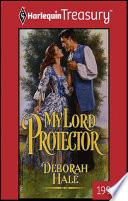
TORN BETWEEN DUTY…AND DESIRE Edmund Fitzhugh was willing to thrust his head back into the matrimonial noose to protect Julianna from her wicked stepbrother. But the maiden was betrothed to his nephew, gone at sea. So their forbidden union was secretly a marriage in name only. Yet, sharing his home with the much younger beauty fueled a passion he'd thought long buried…. Julianna Ramsay was at sixes and sevens! Who would have thought that Edmund's gentle care could ignite in her a woman's ardor that far eclipsed her girlish fancy for his absent nephew? And what of the day when her fiancé returned? Would she then have the courage to choose love over duty?
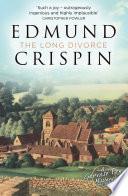
As inventive as Agatha Christie, as hilarious as P.G. Wodehouse – discover the delightful detective stories of Edmund Crispin. Crime fiction at its quirkiest and best.
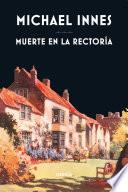
Desde el momento en que el rector del St. Anthony's College aparece muerto en su biblioteca, el escándalo está asegurado, pues las únicas personas con motivos para asesinarlo —una legión de excéntricos y grandilocuentes profesores— resultan ser aquellas que tuvieron la oportunidad de hacerlo. Los esfuerzos de sus colegas por ofrecer unas sólidas coartadas que sirvan a la vez para inculpar a sus enemigos académicos, así como sus particulares divagaciones intelectuales, harán que la tarea del inspector Appleby y el agente Dodd no resulte sencilla en absoluto, ya que nada en ese caso es lo que parece a simple vista, ni siquiera la muerte... Innes tomó como modelo el entorno docente de los antiguos colleges de Oxford que tan bien conocía para componer una esmerada trama detectivesca de corte clásico, a la par que una divertidísima burla de las costumbres de sus eruditos compañeros.
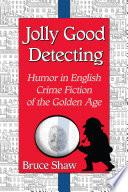
This book is an appreciation of selected authors who make extensive use of humor in English detective/crime fiction. Works using humor as an amelioration of the serious have their heyday in the Golden Age of crime writing but they belong also to a long tradition. There is an identifiable lineage of humorous writing in crime fiction that ranges from mild wit to outright farce, burlesque, even slapstick. A mix of entertainment with instruction is a tradition in English letters. English crime fiction writers of the era circa 1913 to 1940 were raised in the mainstream literary tradition but turned their skills to detective fiction. And they are the humorists of the genre. This book is not an exhaustive study but an introduction into the best produced by the most capable and enjoyable authors. What the humorists seek is to surprise the reader by overturning their expectations using a repertoire of stylistic conceits and motifs (recurring incidents, devices, references). Humor has a liberating effect but is concerned too with "comic contrast" through ugliness and caricature. In crime fiction one effect is intellectual pleasure at solving (or attempting to solve) a puzzle. Another is...
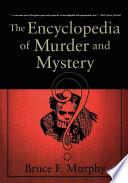
Bruce Murphy's Encyclopedia of Murder and Mystery is a comprehensive guide to the genre of the murder mystery that catalogues thousands of items in a broad range of categories: authors, titles, plots, characters, weapons, methods of killing, movie and theatrical adaptations. What distinguishes this encyclopedia from the others in the field is its critical stance.

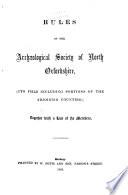
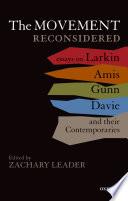
The Movement was the preeminent poetical grouping of post-war Britain. This collection of original essays by distinguished poets, critics, and scholars from Britain and America provides new accounts not only of the best-known of Movement writers - Philip Larkin, Kingsley Amis, Thom Gunn and Donald Davie - but of less-familiar contemporaries.
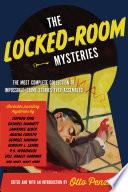
In this definitive collection, Edgar Award-winning editor Otto Penzler selects a multifarious mix from across the entire history of the locked room story, which should form the cornerstone of any crime reader's library. Virtually all of the great writers of detective fiction have produced masterpieces in this genre, including Agatha Christie, Edgar Allan Poe, Dorothy L. Sayers, Arthur Conan Doyle, Raymond Chandler, G.K. Chesterton, John Dickson Carr, Dashiell Hammett, Ngaio Marsh and Stephen King. The purest kind of detective story involves a crime solved by observation and deduction, rather than luck, coincidence or confession. The supreme form of detection involves the explanation of an impossible crime, whether the sort of vanishing act that would make Houdini proud, a murder that leaves no visible trace, or the most unlikely villain imaginable. 70 stories handpicked by Otto Penzle
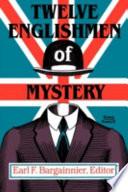
There are hundreds of satisfactory and satisfying British mystery writers whose works should be studied both for their own individual accomplishments and for their comments on the society in which they were published, in the last 150 years, but who have not received any critical comment lately. This volume is designed to correct that fault in a dozen of those unjustifiably neglected British authors: Wilkie Collins, A.E.W. Mason, G.K. Chesterton, H.C. Bailey, Anthony Berkeley Cox, Nicholas Blake, Michael Gilbert, Julian Symons, Dick Francis, Edmund Crispin, H.R.F. Keating, and Simon Brett.
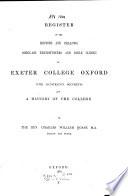
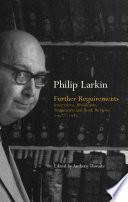
Philip Larkin's Required Writing, a selection from his miscellaneous prose from 1953-82, was highly praised and enjoyed when it appeared in 1983. Further Requirements gathers together many other interviews, broadcasts, statements and reviews. Some of them date from the period after he had chosen the contents of Required Writing; others come from obscure publications, including some early pieces. This second edition of Further Requirements includes two more essays by Larkin: 'Operation Manuscript' and his Introduction to Earth Memories by Llewelyn Powys.
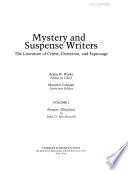
This volume contains bio-critical information on popular writers of the genre.
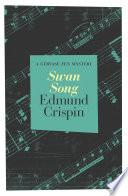
This playful whodunit featuring an Oxford don and a permanently silenced opera singer is “a splendidly intricate and superior locked-room mystery” (The New York Times). When an opera company gathers in Oxford for the first postwar production of Wagner's Die Meistersinger, its happiness is soon soured by the discovery that the unpleasant Edwin Shorthouse will be singing a leading role. Nearly everyone involved has reason to loathe Shorthouse, but who amongst them has the fiendish ingenuity to kill him in his own locked dressing room? In the course of this entertaining adventure, eccentric Oxford professor and amateur sleuth Gervase Fen has to unravel two murders, cope with the unpredictability of the artistic temperament, and attempt to encourage the course of true love. “One of the last exponents of the classical English detective story . . . elegant, literate, and funny.” —The Times of London “[Crispin’s] books are fast, fun and smart, their hero charming, frivolous, brilliant and badly behaved.” —New Review
Opciones de Descarga